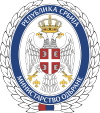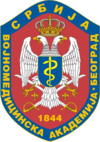Related Research Articles

Kragujevac is the fourth largest city in Serbia and the administrative centre of the Šumadija District. It is the historical centre of the geographical region of Šumadija in central Serbia, and is situated on the banks of the Lepenica River. According to the 2022 census, City of Kragujevac has 171,186 inhabitants.

Mihailo Obrenović was the ruling Prince of Serbia from 1839 to 1842 and again from 1860 to 1868.
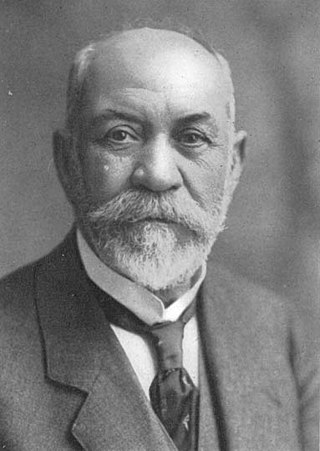
Stojan Protić was a Serbian politician and writer. He served as the prime minister of the Kingdom of Serbs, Croats, and Slovenes between 1918 and 1919, and again in 1920, later called Yugoslavia. He is best remembered as the key theoretician of Serbian parliamentarism.
The People's Radical Party was a populist political party in Serbia and later Yugoslavia. Led by Nikola Pašić for most of its existence, its ideological profile has significantly changed throughout its history, shifting from socialism and radicalism towards conservatism in the early 20th century.

Sava Grujić was a Serbian politician, statesman, general, army officer, and author, serving five times as Prime Minister of the Kingdom of Serbia under two different monarchs from 1887 to 1906.
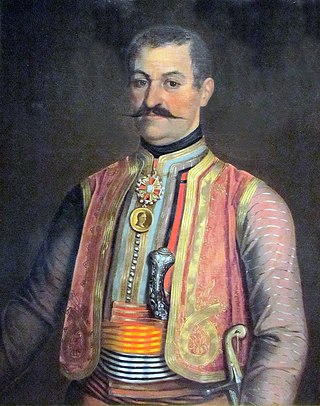
Mladen Milovanović was a Serbian merchant and politician who served as the prime minister of Serbia from 1807 to 1810. A notable voivode during the First Serbian Uprising, he briefly served as a representative in the cabinet of Matija Nenadović and was the first minister of defence from 1811 to 1813.

Svetomir Nikolajević was a Serbian writer, politician, scholar and Nobel Peace Prize candidate.

Stefan Stefanović, known as Tenka (Тенка), was a Serbian politician who served as the Prime Minister of Serbia. Stefanović was a leader of pro-Obrenović group that conspired against Prince Alexander Karađorđević. As a result, in 1840, Tenka Stefanović was forced to join a group of Constitutionalists who were sent in exile to Constantinople.

Jovan Simić Bobovac was a Serbian politician, who began his career as knez during the Ottoman period, participated in the Serbian Revolution (1804–17), and served as the President of the Serbian Supreme Court. He was one of the closest collaborators of Prince Miloš Obrenović.

The Constitution of the Principality of Serbia known as the Sretenje Constitution, was the first constitution of the Principality of Serbia, adopted in Kragujevac in 1835. The Constitution was written by Dimitrije Davidović. The Constitution divided the power into legislative, executive and judicial branches, which is still considered the standard of democracy and constitutionality today.

Lazar Dokić was a Serbian doctor, professor of anatomy, politician, academic and a tutor to king Alexander Obrenović. He served as Prime Minister of the Kingdom of Serbia as well as Minister of Education and Religious Affairs from 1 April to 4 June 1893 then to 16 June to 5 December 1893.

Prince Toma Vučić Perišić was a Serbian politician, military leader during the Serbian Revolution, Freemason and one of the most powerful and influential individuals in Serbia of the 19th century. He was Miloš Obrenović's most virulent opponent, and an ally of the Karađorđević Dynasty with Avram Petronijević and Ilija Garašanin and other so-called Constitutionalists. He wanted to bring rule of law and an effective administrative system in the Principality of Serbia, if only foreign interference was not an issue. Eventually, in the political tug-of-war, the constitutionalists period came to an abrupt end with the former absolute ruler reclaiming the throne.
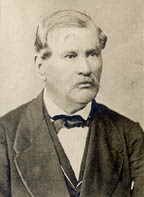
Stevan Magazinović was a Serbian politician and judge. He was minister and representative of the Prince Miloš Obrenović, at a time when Serbia was an autonomous province within the Ottoman Empire.

Stefan Marković was a Serbian politician.

Milutin Garašanin was a Serbian politician who held the post of Prime Minister of Serbia, President of the National Assembly, Minister of Finance, Internal affairs, Ambassador to France and Ambassador to Austria.
Aleksa Janković was a Serbian lawyer and politician who served as Prime Minister of Serbia, Minister of Foreign Affairs, Minister of Justice and Minister of Education. He held pro-Austrian political views and was a close associate of Toma Vučić Perišić.
Lazar Teodorović was a politician, diplomat and polyglot. He was perhaps one of the most educated people in Serbia in the early nineteenth century. He also distinguished himself as a voivode in the first Serbian revolution of independence in 1804.
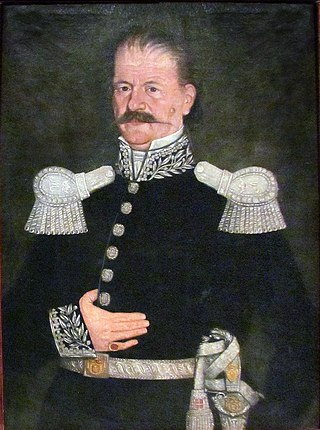
Mileta Radojković, Prince of Jagodina, Grand Count of Rasina was a participant in the First Serbian Uprising and Second Serbian Uprising, and was the first and most important prince of the Jagodina Nahija and held the title of Serdar Rasinski. He was also an honorary member of the Society of Serbian Letters.
Antonije "Anta" Protić was a writer and secretary to the Duke of Smederevo, Vujica Vulićević, in 1807 during Serbia's plight for emancipation from the Ottoman yoke. Later, he was an Assembly Deputy of Karađorđe in his Governing State Council with scholar Vuk Karadžić. After the Second Serbian Uprising, he was a trustee of finances for the Government of Prince Miloš Obrenović. His memoir is now considered one of four primary sources for Serbia's first and second war of independence.
Konstantin N. Nenadović also Kosta Nenadović was a Serbian officer and historian. In 1884, he published the life and works of the great Đorđe Petrović Karađorđe and the life of his dukes and heroes, in which he gave a list and biography of dukes, elders and princes in the nahijas during the First Serbian Uprising.
References
- ↑ "Lista popečitelja i ministara inostranih poslova od obrazovanja prve vlade 1811. godine do današnjeg dana". www.mfa.rs. Retrieved 2019-09-25.
- ↑ "Prestoni Kragujevac: Prestonički službenici". Prvi Prvi na Skali. Retrieved 2019-09-25.
- ↑ "Pomenik znamenitih ljudi u srpskog naroda novijega doba". 1888.
- ↑ Roudometof, Victor (2001). Nationalism, Globalization, and Orthodoxy: The Social Origins of Ethnic Conflict in the Balkans. ISBN 9780313319495.
